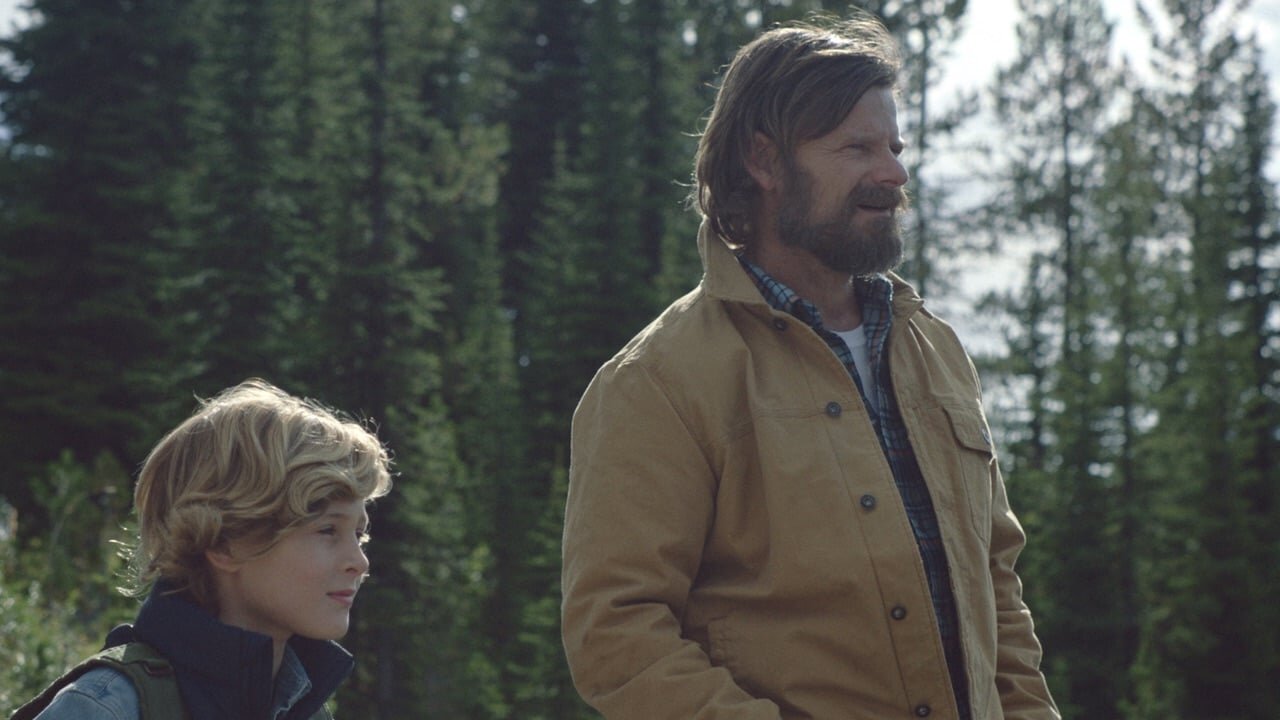Cowboys
Samuel Goldwyn FilmsAnna Kerrigan's feature directorial debut Cowboys is a moving look at a father who is willing to do anything for the happiness of his son. Young Joe (Sasha Knight) has long struggled with his gender identity being assigned female at birth but has reached the realisation that he really is male. Where his father Troy (Steve Zahn) is accepting of this and just wants his son to be happy, Joe's mother (Jillian Bell) is less supportive and feels like this is just a phase caused by his idolisation of his father. Fearing for the safety and happiness of his son, Troy and Joe head out in a race to the border before Joe's mom or the police can find them and return Joe to his mother who has custody of him.
First and foremost, it is important to recognise and celebrate Anna Kerrigan's efforts in creating a text which empathises and highlights the complex and troubling experience that some trans youth can face. Kerrigan finds a poignant truth specifically within the flashback sequences scattered throughout the feature which focus on Joe's journey in finding an answer to his dysphoria and coming out to his parents. From the complex emotion he holds as fights surrounding his gender identity become a leading factor to his parent's separation to his heartbreaking conversations with his father which feel authentic and powerful, these scenes breathe heart into the film and gives the audience the justification needed to understand and stand by the actions of Troy as he technically kidnaps his son. These scenes are clearly helped by Kerrigan's efforts to capture an authentic experience in the film's backbone, even with the overall story being heightened drama.
One of the best pieces of these efforts comes in the casting of Sasha Knight. Not just is this an inspired choice by allowing a young trans individual to actually portray a trans character – something often lacking in cinema – but also due to the emotional power of Knight as an actor. Despite being the youngest member of the cast, there is a legitimate power to both the childhood innocence and deeper more complicated emotions within his performance, with the young actor becoming one of the best performances within the film entirely. Ann Dowd also surprisingly steals the show at points in a supporting role as the main cop leading the search for Troy and Joe. Having to both be a source of strength for Joe's collapsing mother and empathise with the information she finds regarding Troy and Joe, she is the one main character outside of these complex family dynamics and shines as a point of stability not just for the family but also the audience. Rounding out the cast is Steve Zahn and Jillian Bell who have proven to be worthy actors in the past but feel a bit off here. Whilst each actor is clearly trying their hardest – Zahn especially gives one of the most emotional performances of the year – both consistently feel out of place. Their performances, in a vacuum, are impressive but when put in the backdrop of the film's tone and world, it just doesn't click as much as it should.
Whilst the film deserves recognition and celebration as a trans text, it also is important to recognise that the film isn't limited by that perspective either. Where this young boy's journey for acceptance in his gender identity serves as a catalyst and backbone for the film's drama, ultimately, Cowboys boils down to a tragic exploration of the love a parent holds for their child more than anything else. This message and these emotions will resonate with any parent that sits down to watch the film making it a worthwhile viewing experience for audiences no matter their relationship with the transgender community. The film demands a universal sense of empathy and understanding that is hard to ignore or feel detached from for any audience member.
Past the film's narrative value, the technicals are also stunning. John Wakayama Carey's cinematography, specifically, captures the Montana wilderness with a grand scale, almost making the film's characters feel like they are walking through paintings of this stunning landscape. It is hard not to appreciate the rawness of this environment, which puts the film's warmer heart in a noticeable contrast. It also is refreshing to see a queer story casually take place in such a masculine setting as a small town in Montana. Again, focusing on authenticity over cliches, the film isn't afraid to cross political lines and explore the mindset of this setting and how it can affect such a deeply emotional journey in such a causal and seemingly authentic manner.
The biggest piece of the film which will frustrate some will be its ending. Not only is it incredibly clear how certain sequences will go down taking out some of the impacts they should hold, but how it reaches closure with some of its characters feels a bit underwhelming. Joe's mom specifically largely feels underwritten throughout the entire film but when her role was simple, this wasn't a super noticeable issue. Towards the end, as the character is seen in a more complex light, that really does come back to bite the effectiveness the emotions surrounding this character is supposed to connect with the audience. Still, these criticisms are honestly rather small. Cowboys remains a confident and important film which is even more impressive when seen in the context of it being a directorial debut. Anna Kerrigan immediately becomes a voice to watch with Cowboys being a wonderful start for what seems to be a promising career.


